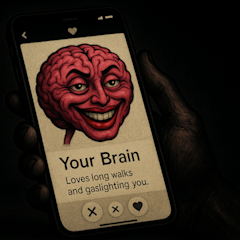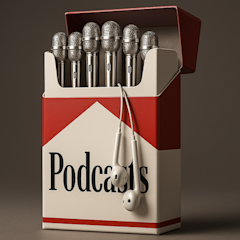Debate Is Dead. What’s Next?
Charlie Kirk’s death was a shock.
Not just because of the violence itself. Or the endless looping of his death on social media.
But because of what came after—millions of people watching, arguing, and spiraling into their corners.
The entire event became less about a man and more about the way we talk—or fail to talk—to one another.
So I wanted to have a conversation about how we can talk to each other now, in this bizarre, divided, dopamine-addicted, chaos-entrepreneur culture we live in.
That’s why I asked Charles Duhigg back on the podcast.
You might know him from The Power of Habit. His new book is Super Communicators. It’s about how to have better conversations in a world that’s tearing itself apart through bad ones.
If there’s one skill that can make or break everything, it’s this.
The Hardwired Superpower
Communication isn’t about transmitting information.
That’s the byproduct.
The real evolutionary function of communication is connection.
When we feel heard, our brain releases oxytocin (the bonding hormone), which reduces stress and increases trust.
Homo sapiens thrive because we figured out how to feel kinship with each other, even in disagreement.
Our biggest failures come when we lose that sense of connection.
I watched some of his debates.
That’s the thing Kirk did well—even when you despised him, he’d mirror you, loop back your words, keep the temperature low enough that at the end of the night, most (though obviously not all) would walk away thinking, “At least he heard me.”
That’s what Charles calls “super communication.”
The brain uses mirror neurons to reflect emotions back at each other. When you repeat or paraphrase what someone says (“looping”), their brain perceives it as deep listening.
They immediately trust you more.
Three Conversations at Once
Charles broke one of the biggest problems with how we communicate.
Neuroscience says there are three types of conversations:
- Emotional
- Practical
- Social
Here’s the problem:
When you’re in different conversations at the same time, you can’t hear one another.
When one person is having an emotional conversation and the other is stuck in a practical frame, their brains literally light up in different networks.
An example:
A star employee is upset because they feel unappreciated (emotional/limbic brain).
The manager responds with a spreadsheet of productivity metrics (practical/prefrontal cortex).
Coworkers start gossiping, speculating, or joking about “office drama” (social/orbitofrontal cortex).
The employee quits.
If our frames aren’t aligned, people literally can’t process each other’s words as intended.
It’s probably the #1 thing that ruins relationships: we think we’re having the same conversation, but we’re not.
When You’re Furious, Get Curious
Here’s the trick Charles gave me (and now I’m giving to you):
When you feel furious… get curious.
Anger narrows your focus (amygdala hijack). Curiosity broadens it, activating the dopamine reward system—making people more receptive.
Ask a deep question.
Not the lazy “what hospital do you work at?” kind of question. The “why did you go to med school in the first place?” kind.
Ask someone on the opposite side of an issue: Why is this important to you?
And then shut up. Listen so hard you can repeat back what they said, maybe better than they said it.
Suddenly, the cliches fall away.
Nobody says “guns don’t kill people” when you ask them how their dad taught them to hunt. Nobody says “ban all guns” when they tell you about their kid hiding under a desk during a shooting.
The brain encodes disagreement as a threat. The same circuits as physical pain light up. But if someone feels understood first, those circuits quiet down.
That’s where connection lives.
The Real Challenge
Charles left me with homework, and I’m passing it on:
This week, find someone you disagree with. Ask them why that belief matters to them. Don’t argue. Just listen.
It’s hard.
It’s going to feel like holding back a sneeze. But if you can do it, you’ll feel something most of us haven’t felt in a while—human connection from across the aisle.
The superpower isn’t victory—it’s repair. The fabric’s fraying, and what we need are people mending threads, not yanking them loose.










